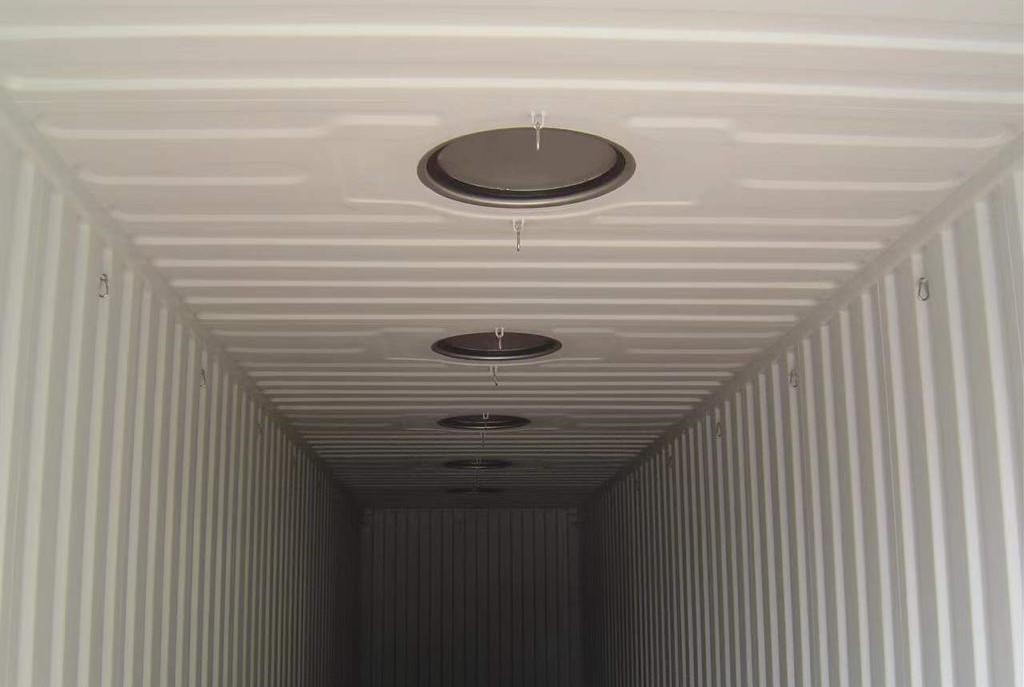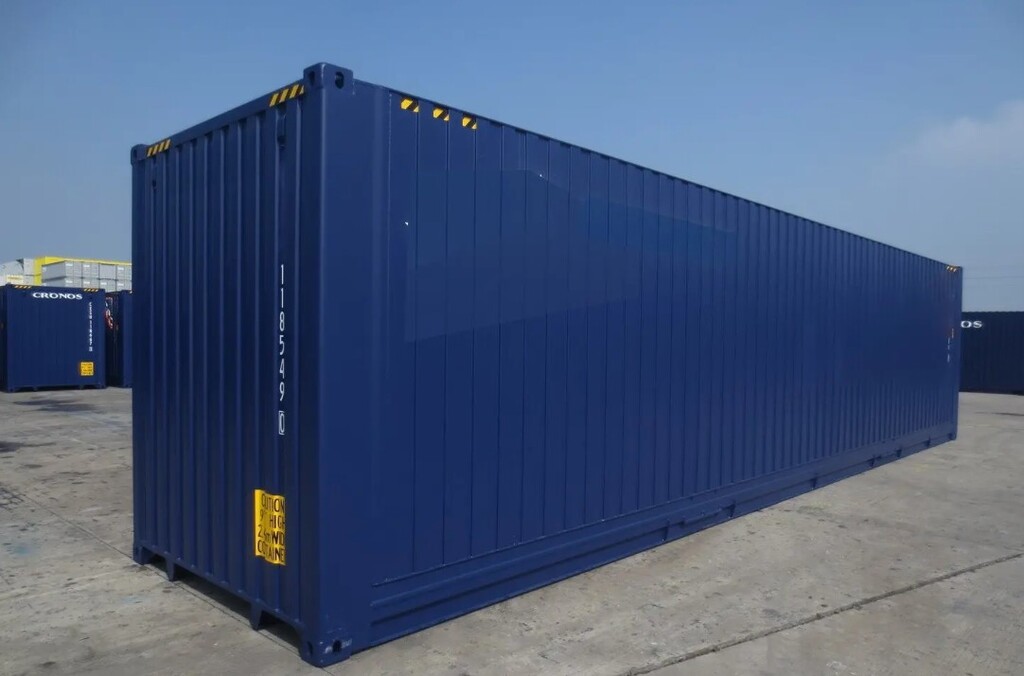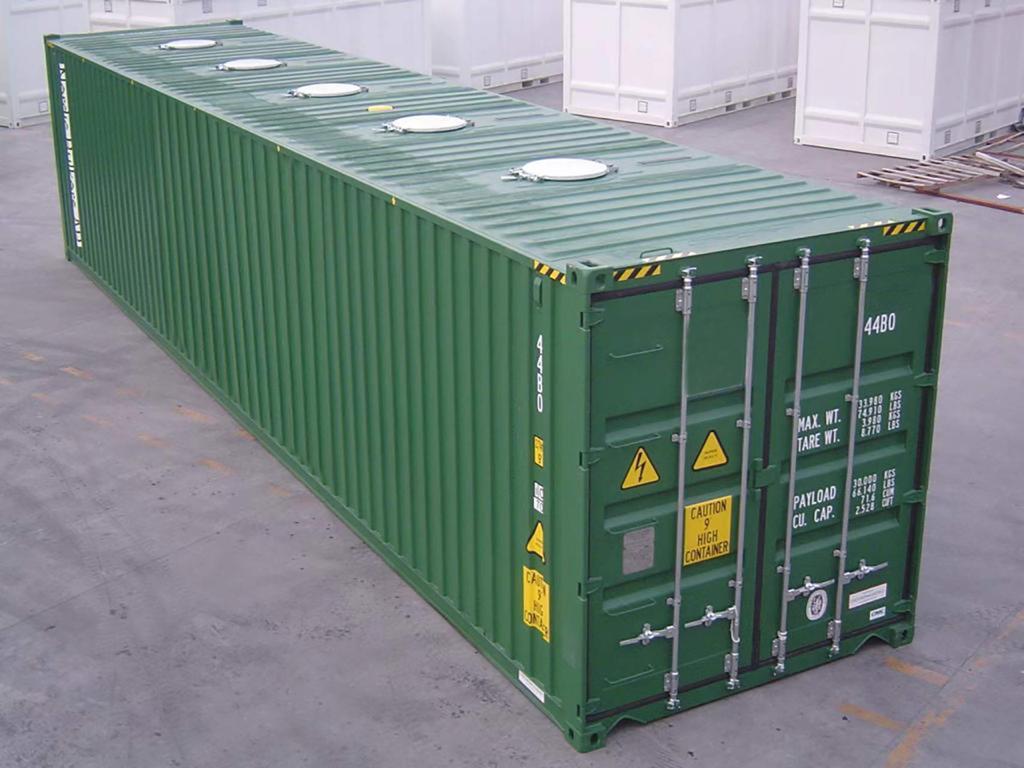A high cube rental is a practical and cost-effective solution for storage, temporary office space, or even construction site use.
A High Cube Container is known for its special feature: its extra height. This makes it 1′ taller than a standard container.
This type of container allows for more efficient transportation and cargo storage. The extra 1′ of height provides approximately 4 m³ of additional space. As a result, you can load more bulk goods or items that are typically too large to fit in a standard container.
Before renting a high cube container, it’s crucial to check several key aspects to ensure the container is safe, suitable for your needs, and compliant with regulations.
Read this article for a comprehensive checklist:

Contents
1. Container Condition
Inspecting the condition before high cube container rental is essential to ensure you’re getting a unit that suits your needs, whether for storage, transport, or conversion. A high cube shipping container condition inspection includes:
- Structure: Structural damage that could affect stacking or lifting, make sure there are no major dents, warps, or bulges on side panels or the roof.
- Roof: The roof must be free from rust patches, holes, soft spots, and signs of water pooling.
- Doors: Check if both doors open and close smoothly, and the gaskets/seals are intact (look for cracks, gaps, or brittleness).
- Paint & Rust: Make sure there is only minimal surface rust (no deep corrosion) and the paint is not flaking excessively (which could expose metal).
- Floor: The wooden flooring should be solid with no rot, warping, or soft spots, and there should be no oil stains or chemical residue (important for food or sensitive goods).
- Walls & Ceiling: They must be free from punctures, holes, or signs of light leaks. No evidence of water intrusion or mold.
- Odor Check: Smell the interior; there shouldn’t be chemical, moldy, or musty odors.
- Corners & Edges: Check corner castings for cracks or deformation (critical for lifting), and ensure there are no missing or damaged welds.
- Ventilation: Make sure side vents are present and unblocked to prevent condensation.
2. Container Type & Size
One of the most critical things you need to inspect before container High Cube rental is its type and size. This is to ensure you’re getting what you paid for and that it fits your intended use, then to avoid mistakes in dimensions.
High Cube containers are 1’ taller than standard containers (9’6″ vs. 8’6″). Some suppliers may mix them up — especially if you’re not renting in person.
With this special container size, you will also need to know the exact external and internal dimensions for storage space, transportation clearance, and cargo fitting. An incorrect size could lead to loading issues or delivery access problems.
3. Structural Integrity
The structural integrity of a high cube container is essential. High Cube containers are often used for the storage or shipping of tall or heavy items, so any weakness in the structure can lead to safety issues, water damage, or rejection during transport.
A damaged structure may collapse under heavy loads or during transport. Small cracks, pinholes, or damaged seals can lead to leaks, especially in High Cubes with tall ceilings.
This is especially important when you are about to use the container for international shipping. A structurally compromised container may fail CSC inspection and be rejected from shipping goods overseas.
4. Rental Terms & Insurance
Inspecting the rental terms and insurance before renting a High Cube container is just as important as checking its physical condition. Misunderstanding the contract or not being properly insured can lead to unexpected costs, disputes, or liability issues.
Some rental agreements include charges for cleaning, damage, pickup delays, or even fuel surcharges. Know who’s responsible for maintenance, repairs, or relocation of the container during the rental period.
Also, ensure that there is insurance to protect the container. Without proper insurance, you may be on the hook for theft, vandalism, weather damage, or transport accidents. If you’re storing goods, check if your contents are insured, as many rental policies only cover the container itself.

5. Permits & Local Regulations
Checking permits and local regulations before renting a High Cube container is very important. Even though you may just be placing a container temporarily, local laws, zoning codes, and HOA rules can restrict or regulate its use.
Local authorities may require permits for placement, especially in residential, commercial, or urban zones. Failing to check ahead of time can lead to fines, forced removal, or legal complications.
Call your local city hall or permitting office and explain your use case, such as a temporary storage container on private property. Get any necessary permits in writing and keep permit copies on-site in case of inspections or complaints.
6. Delivery & Pickup Logistics
You need to check delivery & pickup logistics before renting a High Cube container. These containers are larger and taller than standard units (typically 9’6” high), which makes delivery more complex – especially in residential or tight urban environments.
For a container on this site, you need at least 14-15 feet of vertical clearance. The delivery trucks are usually large and heavy, often 40-60 feet long, and need wide turning space and firm, level ground.
Also, check the ground conditions: is the surface flat, level, and firm? Avoid soft ground, mud, or grass, as heavy trucks may sink. Consider placing railroad ties, pavers, or concrete blocks under the container to keep it level and off the ground.
Failing to prepare for high cube container delivery and pickup can lead to failed delivery attempts, additional charges, property damage, or the container not fitting on-site at all.
7. Photos & Documentation
Taking photos before and after renting a High Cube container is a smart and simple way to protect yourself. It protects you from false damage claims. Also, get a condition report from the supplier. Here are things you should photograph:
- Full exterior (all four sides)
- Roof (if accessible)
- Interior (walls, floor, ceiling)
- Door seals and locking mechanisms
- Any existing dents, rust, or patches
8. Reputable Supplier
Check reviews, certifications, and years in business of your High Cube Rental Supplier. Tradecorp USA (Tradecorp Container Sales & Rental LLC) is BBB-accredited and holds an A rating High Cube Rental Supplier.
Conclusion
High cube rental can indeed be a budget-friendly storage solution, especially when used short-term.
Tradecorp is a reliable shipping container sales, purchase, rental, and modification service company. Tradecorp provides modification and custom shipping container services by adding windows, doors, walls, and roof insulation.
Our experienced staff is ready to help you arrange the shipping of your shipping container to your requested location. Fill out our quote form to buy or rent from us!

